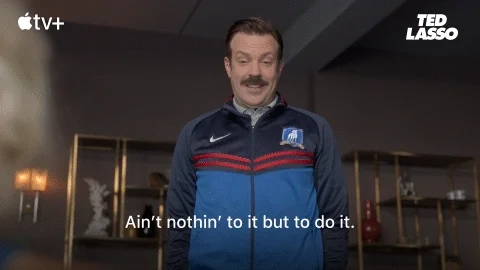It's a tale as old as time...
You've got an important project due, but distractions keep pulling you away — emails, notifications, calls, and well-meaning colleagues with a lot of "quick questions".

Do you ever wish you could block out everything, get in the zone, and knock out more work in less time?
Learning how to engage in deep work might be just what you need.
What is Deep Work?
Deep work means focusing on cognitively demanding tasks for long periods without being distracted.
Why It Matters
In a world full of interruptions, deep work can help you finish complex tasks more quickly, improve your skills in your field, and get a competitive edge over others.

Cal Newport, computer science professor and author of Deep Work: Rules for Focused Success in a Distracted World coined the concept of deep work. He found that efforts to do quality work without wasting time are limited by distractions such as:
Checking and scrolling on social media
Constantly switching to different tasks
Replying to emails and clearing inboxes

Deep work, however, doesn't just mean setting your phone aside for a few hours. Deep work can only be achieved when focusing on a task that requires challenging, strategic thinking.
Examples of Deep Work
Knowing the difference between deep and shallow work helps you make high-value tasks your priority, while keeping more of your time from being eaten up by routine, less impactful activities.

Deep Work
Writing a report: Working on a detailed report, paper, or proposal for hours without checking emails or texts.
Studying for an exam: Preparing for an important exam by creating a distraction-free environment and working through challenging material.
Learning a skill: Dedicating time solely to learning something new, like mastering a language or a musical instrument, with total focus.
Shallow Work
Responding to emails: Quickly answering several routine emails with canned responses.
Attending status update meetings: Passively attending status update meetings, mostly listening and giving little input.
Filling out simple forms or data entry: Repetitively entering basic data into spreadsheets while listening to music or talking to a colleague.
Quiz
When tackled with uninterrupted focus, which of these tasks are examples of deep work?
How to Start Practicing Deep Work
Schedule time for it: Block off specific times of day dedicated to uninterrupted work.
Create a distraction-free environment: Silence notifications, close unnecessary tabs, and let people around you know you’re unavailable.
Set clear goals: Know exactly what you want to achieve during each deep work session.
Take breaks sparingly: Only take breaks when you feel your mind starting to wander or your eyes are unable to focus.
Gradually build stamina: Start with small, focused sessions and build your deep work muscle over time.

Newport also suggests these strategies to help you prioritize deep work:
Drain your shallows: Remove as many shallow work obligations from your plate as possible. Make a checklist of shallow 5-10 minute tasks each day and complete them all in one or two sittings so that the rest of your time can be spent on deep work.

Embrace boredom: To help train your deep work muscle, practice teaching your mind that it's OK to not be stimulated at all times.
Next time you're waiting around for something, try just being present in that moment. The ability to focus is a skill!
 Photo courtesy of NappyStock
Photo courtesy of NappyStock
People who take deep work seriously also take boredom seriously. They’re happy to have long periods of time where there’s not a lot of excitement or novel stimuli coming. They’re able to take long walks. They’ll go places without their phone. They’ll even stand in a checkout line, and just stand in the line.
— Cal Newport
Test Your Learning: Is It Deep Work?
Wyatt has been assigned to finish a detailed research project in 3 days.
He's used to responding to emails quickly and checking his phone often.
What’s the best way for him to tackle this using deep work?
A. Work deeply and take breaks every 30 minutes to stay on top of communication.
B. Block off at least 90 minutes each day for deep work, setting communication and other tasks aside for later.
C. Multitask to make progress on all of his responsibilities: the project, emails, and other tasks.
D. Work longer hours for the next 3 days to ensure he has time for everything.
Quiz
How should Wyatt tackle his assignment?
Take Action
Before you tackle your next big task, take some steps to prepare for deep work practice:

Your feedback matters to us.
This Byte helped me better understand the topic.

